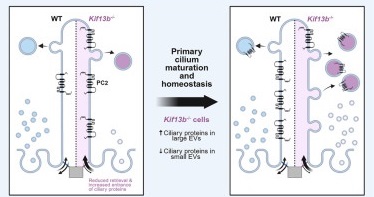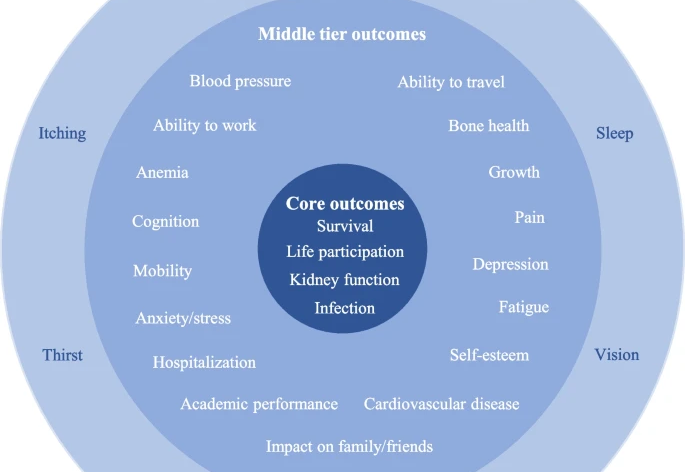News and Publications
Artificial intelligence and perspective for rare genetic kidney diseases
Chen et al, Current Biology, September 2025. https://doi.org/10.1016/j.kint.2025.03.033
How Artificial Intelligence Could Help Improve Diagnosis and Care in Rare Kidney Diseases
Background
In recent years, advances in technology have allowed scientists to analyze very large amounts of medical and biological data. This is often referred to as “big data”. When combined with artificial intelligence (AI), computer systems that can learn patterns and make predictions, big data is transforming many areas of medicine. However, applying AI to kidney diseases is more challenging than in some other fields because the kidneys are complex organs, and kidney diseases can vary greatly from person to person.
Rare kidney diseases, including many types of renal ciliopathies, are especially difficult to study. They are uncommon, which means there are fewer patients available for research, and their symptoms and genetic causes are very diverse. As a result, families often face long and difficult journeys to receive a correct diagnosis, sometimes called a diagnostic odyssey..
What this review highlights
This scientific review describes how AI is beginning to be used to help understand rare kidney diseases better. AI tools can help doctors and researchers to:
- Detect patterns in different types of data (for example, kidney scans, DNA, proteins, and clinical symptoms)
- Analyze genetic data to identify disease-causing genes
- Support doctors in making earlier diagnoses and reducing diagnostic wandering
- Generate new hypotheses for research into disease mechanisms and possible treatments
The review also explains that while AI is promising, it still faces challenges, especially because rare diseases have limited data, and each patient’s disease can look different. Researchers are developing new approaches that do not require large numbers of patients and can still learn useful information from small datasets.
Why this matters for patients and families
Using AI in rare kidney diseases has the potential to shorten the time to diagnosis, help identify new disease genes more quickly, and guide more personalized care. This could improve quality of life for patients and increase the chances of developing future targeted therapies. In other words, AI may help point researchers and doctors toward better answers, faster.
Take-home message
AI will not replace doctors, but it can become a powerful tool to help them understand complex rare kidney diseases, support earlier and more accurate diagnoses, and open new paths toward treatments. For families living with renal ciliopathies, this represents progress toward clearer answers and better care in the future.
The integration of big data and artificial intelligence (AI) has revolutionized biomedicine, enhancing our understanding of diseases and health care practices. Although AI has shown remarkable success in some medical fields, its application in nephrology faces challenges because of the complex disease mechanisms and intricate physiology. These obstacles are further compounded in rare diseases, affecting <1 in 2000 people, where data scarcity and clinical complexities create additional challenges for AI in accurate disease characterization and prediction. Rare kidney diseases encompass >150 different conditions, with significant clinical and genetic heterogeneity, posing unique challenges for AI applications. Embracing AI for rare kidney diseases is essential, not only for driving the discovery of novel genes, pathways, and mechanisms relevant to both rare and common diseases, but also for shortening the diagnostic odyssey faced by patients with rare conditions, a goal regarded as the most urgent and transformative need in rare disease care. Recent reviews highlight AI applications in nephrology, focusing on big data sources, decision support systems, imaging data, multi-omics integration, and genotype-phenotype analysis. This review explores the current landscape of AI in rare genetic kidney diseases, examining key challenges and advancements in disease characterization and clinical decision support, with an emphasis on hypothesis generation using unsupervised methods and generative AI. It shows how AI can empower physicians to interpret complex data sets, identify patterns, and generate insights that can lead to improved patient outcomes and innovative medical research for rare genetic kidney conditions.





